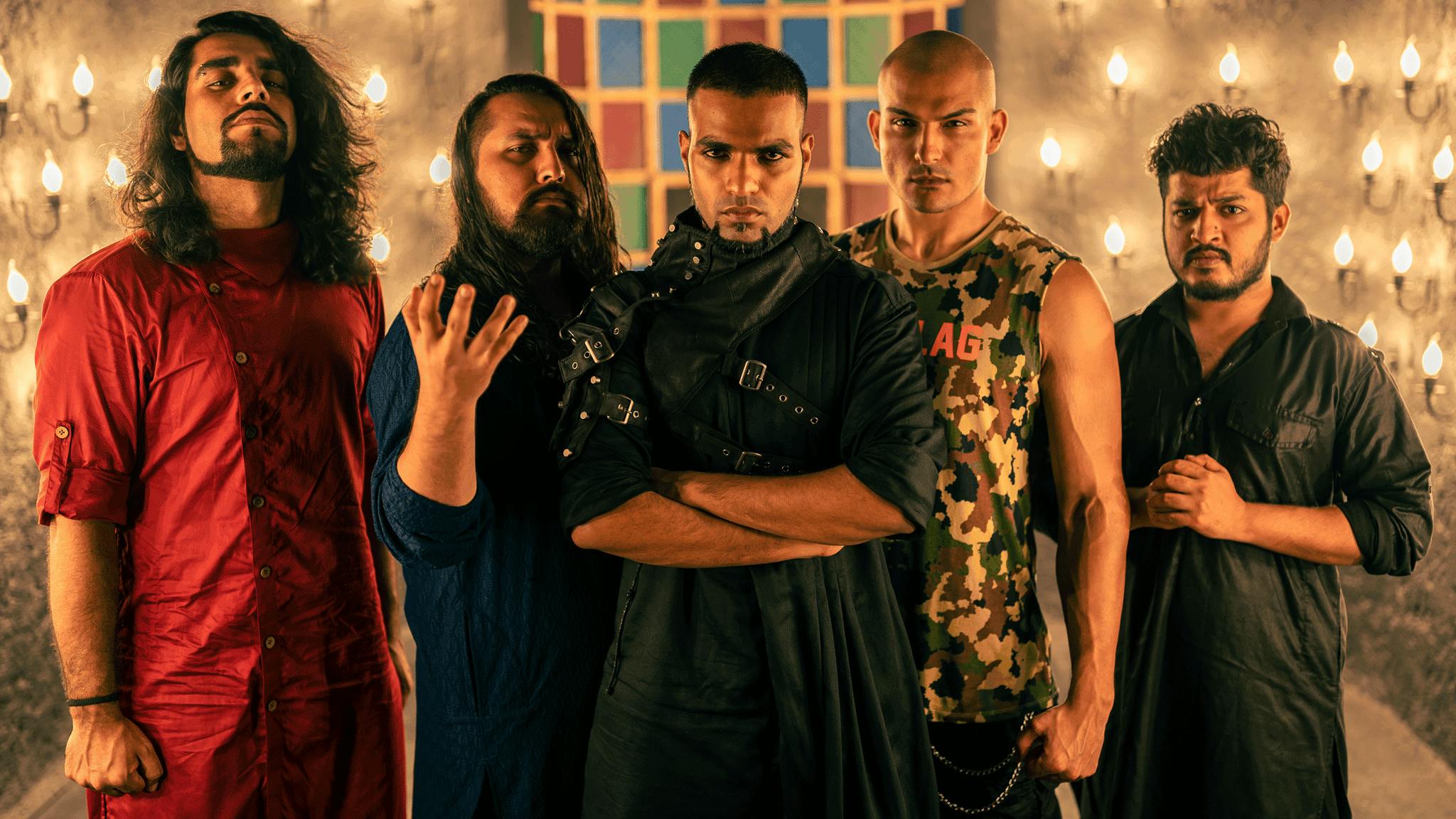Bloodywood’s roots were laid in 2016. Back then it was just Karan and vocalist Jayant Bhadula throwing ideas around and letting off steam by recording metallised covers of pop and folk songs. The duo worked – and sometimes slept – in a friend’s New Delhi studio.
“It wasn’t exactly a real studio,” Karan sniggers. “It was tiny and it would get very cold at night. We didn’t have any blankets, so we pulled the curtains down and used those instead. It wasn’t that we were poor; we were just too lazy to do anything about it!”
Both men also thought it best to hide their activities from their parents.
“When you’re from India there are only three parent-approved professions: doctor, lawyer or some sort of government official. For sure they were not going to be okay with it, but I’m pleased to say they are now.”
A pivotal moment came when the duo met rapper Raoul Kerr, who became the band’s third and final full-time member. Today’s touring band also includes drummer Vishesh Singh, bassist Roshan Roy and Sarthak Pahwa who plays the dhol, a traditional Indian double-headed drum. It was the addition of Raoul, an intensely impassioned frontman, that cemented the Bloodywood vision.
Appealing to the band’s drive to become a force for good, Raoul had already rapped his way through a solo song called For Her, its strong message lambasting sexual violence. Today Raoul almost always wears a muscle vest adorned with the legend No Flag, giving consistent evidence of Bloodywood’s desire to unify rather than divide.
“It was clear from the moment I met him that we shared the same vision,” Karan recalls. “Or maybe not the moment itself, because at first I thought he looked like a wrestler! His rhyme and flow – that was the one piece we were still looking for. We didn’t exactly know we were looking for something, but we found it anyway, and he fit right in.”
A breakthrough came in the form of Ari Ari, a rocked-up reimagining of an Indian folk song that caught the attention of Bollywood star Ileana D’Cruz. More important than the publicity garnered from Ileana’s Instagram was the effect on the band’s morale. Inspired, they set about perfecting a style of music that incorporated western alt. metal influence with traditional Indian instruments – the dhol and flute – with Jayant and Raoul vocalising in English, Hindi and Punjabi.
With a covers album behind them, the band’s original material soon began to capture the imagination. Songs like Endurant, almost impossible to classify, emerged into dark waves of intoxicating sound, and Jee Veerey, perhaps Bloodywood’s most immediate earworm, spoke openly of depression. In a move that proved typical of what was to come, the band opted to turn words into action, offering access to pre-paid online counselling to fans who couldn’t afford it.
“I just got lucky, man!” laughs Karan, considering his band’s unique melange of styles. “When we started out we were just trying to make music. It seemed the only way to make heavy music was to listen to what people were doing in the West, but even before Raoul joined, we stumbled upon something. I tried to incorporate those instruments from Indian culture that weren’t normally included in metal.”
With fans writing to them to say that Jee Veerey had saved their lives, Bloodywood began to understand the power of music. “We’ve always written songs with a purpose,” Karan reflects. “It’s not our style to write songs just for arbitrary or artistic reasons. We like to be very direct and impactful with our message.”
